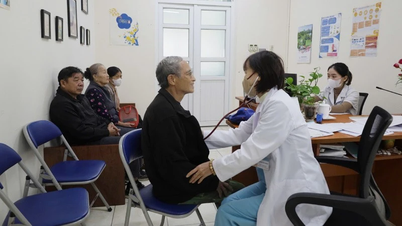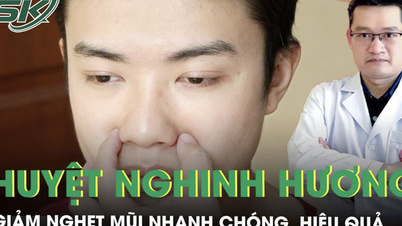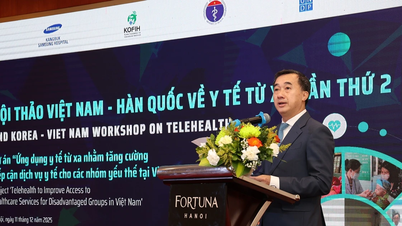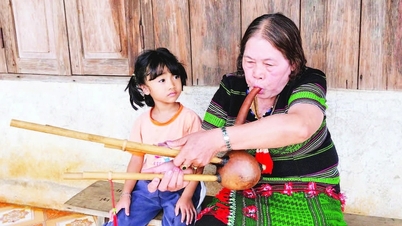According to Earth, new research shows that the habit of drinking coffee daily not only helps you stay alert, but may also protect against head and neck cancers.

Drinking coffee not only helps you stay awake, but it can also offer many health benefits - Photo: Farknot Architect/Adobe Stock
A comprehensive analysis by scientists at the Huntsman Cancer Institute in Utah has shed light on the potential benefits of coffee and tea in reducing cancer risk.
Coffee and the risk of cancer
Head and neck cancer is the seventh most common cancer worldwide , with cases increasing in low- and middle-income countries. In the U.S. alone, the National Cancer Institute estimates that approximately 71,100 people will be diagnosed with oral, throat, or laryngeal cancer by 2024.
Tobacco and alcohol remain the leading risk factors, but experts are now exploring dietary factors, including coffee and tea.
Researchers evaluated data from 14 previous studies, including a total of 25,331 participants, comprising 9,548 cancer patients and 15,783 non-cancer patients. The goal was to understand the link between dietary habits and the risk of head and neck cancer.
"While there have been previous studies on the reduced risk of cancer from consuming coffee and tea, this study highlights their impact on head and neck cancers, including the observation that even decaffeinated coffee offers some positive effects," explained Dr. Yuan-Chin Amy Lee, the study's lead author.
The potential protective effects of coffee against cancer.
Research has shown strong evidence that coffee consumption is associated with a reduced risk of head and neck cancer. People who drink four or more cups of coffee a day have a 17% lower risk of head and neck cancer compared to those who do not drink coffee, including cancers of the mouth, throat, and larynx.
The protective effects of coffee are particularly pronounced against certain types of cancer. Coffee drinkers have a 30% lower risk of oral cancer and a 22% lower risk of throat cancer. Drinking 3-4 cups of coffee a day reduces the risk of cancer in the lower part of the throat by 41%.
Even without caffeine, coffee still shows significant protective effects. People who drink decaffeinated coffee have a 25% reduced risk of oral cancer, suggesting that other compounds in coffee may also contribute to its anti-cancer properties.
Tea consumption has also shown protective effects in some cases. Drinking tea has been associated with a 29% reduced risk of hypopharyngeal cancer.
However, drinking more than one cup of tea per day was associated with a 38% increased risk of laryngeal cancer. This suggests that other factors, such as beverage temperature, may influence the results.
Coffee contains over 2,000 compounds, including anti-inflammatory and antioxidant substances such as chlorogenic acid. These compounds are linked to a reduced risk of cardiovascular disease, type 2 diabetes, and inflammation-related conditions.
Chlorogenic acid, in particular, shows potential in the treatment of anxiety and post-traumatic stress disorder (PTSD).
While the findings are promising, the study acknowledges the complexity of coffee and tea drinking habits. Differences in brewing methods, consumption levels, and other lifestyle factors may influence the results.
Incidence of head and neck cancer is declining in wealthy countries thanks to improved healthcare systems, but it remains a significant burden in resource-limited regions.
"Coffee and tea drinking habits are quite complex, and these findings support the need for more data and further studies on the impact of coffee and tea in reducing cancer risk," said Dr. Lee.
In addition to dietary habits, public health initiatives should continue to address tobacco and alcohol use, two factors that significantly increase cancer risk.
The study was published in the journal Cancer .
Source: https://tuoitre.vn/nghien-cuu-moi-uong-ca-phe-giam-nguy-co-mac-mot-so-loai-ung-thu-20241229121003697.htm



![[Photo] Prime Minister Pham Minh Chinh holds a phone call with the CEO of Russia's Rosatom Corporation.](/_next/image?url=https%3A%2F%2Fvphoto.vietnam.vn%2Fthumb%2F1200x675%2Fvietnam%2Fresource%2FIMAGE%2F2025%2F12%2F11%2F1765464552365_dsc-5295-jpg.webp&w=3840&q=75)



![[Photo] Closing Ceremony of the 10th Session of the 15th National Assembly](/_next/image?url=https%3A%2F%2Fvphoto.vietnam.vn%2Fthumb%2F1200x675%2Fvietnam%2Fresource%2FIMAGE%2F2025%2F12%2F11%2F1765448959967_image-1437-jpg.webp&w=3840&q=75)















































![[OFFICIAL] MISA GROUP ANNOUNCES ITS PIONEERING BRAND POSITIONING IN BUILDING AGENTIC AI FOR BUSINESSES, HOUSEHOLDS, AND THE GOVERNMENT](https://vphoto.vietnam.vn/thumb/402x226/vietnam/resource/IMAGE/2025/12/11/1765444754256_agentic-ai_postfb-scaled.png)





















































Comment (0)